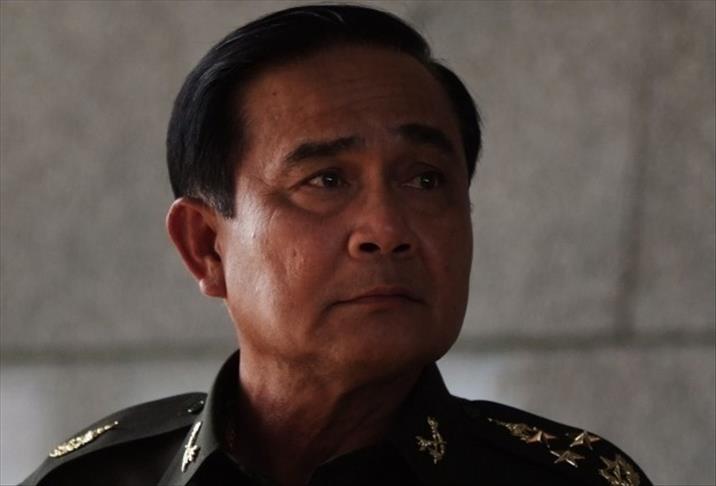
With the Thai junta continuing to tighten its grip on all sections of society, criticism has moved from civil rights groups and supporters of the overthrown government to those it used to hold most dear - members of the pro-establishment Democrat Party.
Party leader and former Prime Minister Abhisit Vejjajiva accused the ruling National Council for Peace and Order (NCPO) of double standards this week, questioning its reluctance to publicly disclose its assets - long a contentious issue in the country, with previous juntas using coups as a channel to enrich themselves during their time in power.
"You, the NCPO, have to try your best to use the same standards as those you want the country to have," Vejjajiva told The Nation newspaper, referring to the lack of transparency concerning junta members' assets.
"It's like you are creating a 'decent system' in your opinion, but you say it should only be implemented later," he added.
On Tuesday, Anti-Corruption Commission Secretary-General Sansern Porjit announced that junta members will only disclose their assets "on a voluntary basis," after a survey revealed Sunday that 88 percent of respondents considered such disclosure necessary. The survey, organized by the well-respected National Institute of Development Administration, was conducted from a sample of 1,241 persons around the country.
The junta's squeeze on the National Legislative Assembly – the body in charge of discussing and passing laws until the next elections in October 2015 - and the soon-to-be established National Reform Committee (NRC) is also raising eyebrows.
The assembly's entire 200 members have been handpicked by the junta, more than half active or retired military officers.
The selection process for the NRC is slightly more open - separate civilian committees suggesting a candidate-list, but the junta will then select the members.
The first debate of the Assembly on Monday saw junta leader General Prayuth Chan-ocha talk extensively about the 2015 national budget. In an arena normally simmering with heckling, questioning and other political quarrel, not a sound was heard bar Chan-ocha's voice - the 110 military officers seated nodding along to his every word.
It was like a "well-oiled army machine," wrote The Nation newspaper Tuesday.
The appointment of some members of the selection committees for the NRC candidate-list has also met with public disapproval. Former senator Rossana Tositrakul - well-known in Thailand for her fight against the privatization of state enterprises in the energy sector - has highlighted that some of those on the screening panel for the energy reform sector – one of the 11 sectors of the future NRC – were former executives of the Petroleum Authority of Thailand (PTT), the 51 percent state-owned company that dominates the sector.
"It indicates that major energy business groups are pushing for their interests. I am wondering if the panel will also consider opponents of the PTT becoming members of the National Reform Committee," she told local media.
In this week's Nation interview, Democrat Party leader Vejjajiva also emphasized that the junta is mostly relying on "conservative technocrats and people from some giants in the business sectors."
"It seems that the NCPO wants to see the country like it was in the past, in many aspects," he said, referring to the political regime of the 1980s, when the military held sway over a government composed of technocrats and elections had almost no influence on the country's leadership.
"Some are possible, some are not. Society has changed, the population and family structures have changed, you can't expect the same," he added.
The junta's August 3 suspension of a two-decade old decentralization policy has also worried many observers. The military has cancelled all local elections at sub-district and provincial levels to revert to a system where local officials are appointed by the ministry of interior.
"There is a gap between government officials and the people. Villagers now don't have people in the area they can immediately turn to when they face problems," highlighted Abhisit.
From the May 22 coup onwards, Chan-ocha has asked people to abstain from criticizing the junta's work and to give it time to demonstrate its ability.
In late May and June, a first wave of street protests directly opposing the coup were greeted by massive military suppression and waned quickly. But the current wave of criticisms - which are not taking place on the streets but in newspaper columns and on social networks - are aimed not just at the junta, but at its specific policies.
What's more, they are clearly building.
"Without constructive criticism from people who might have more experience than the 250-member Reform Committee and input from the general public, it is unlikely the reform roadmap will be well-formed," wrote Attiya Achakulwisut in a Bangkok Post column Tuesday.


